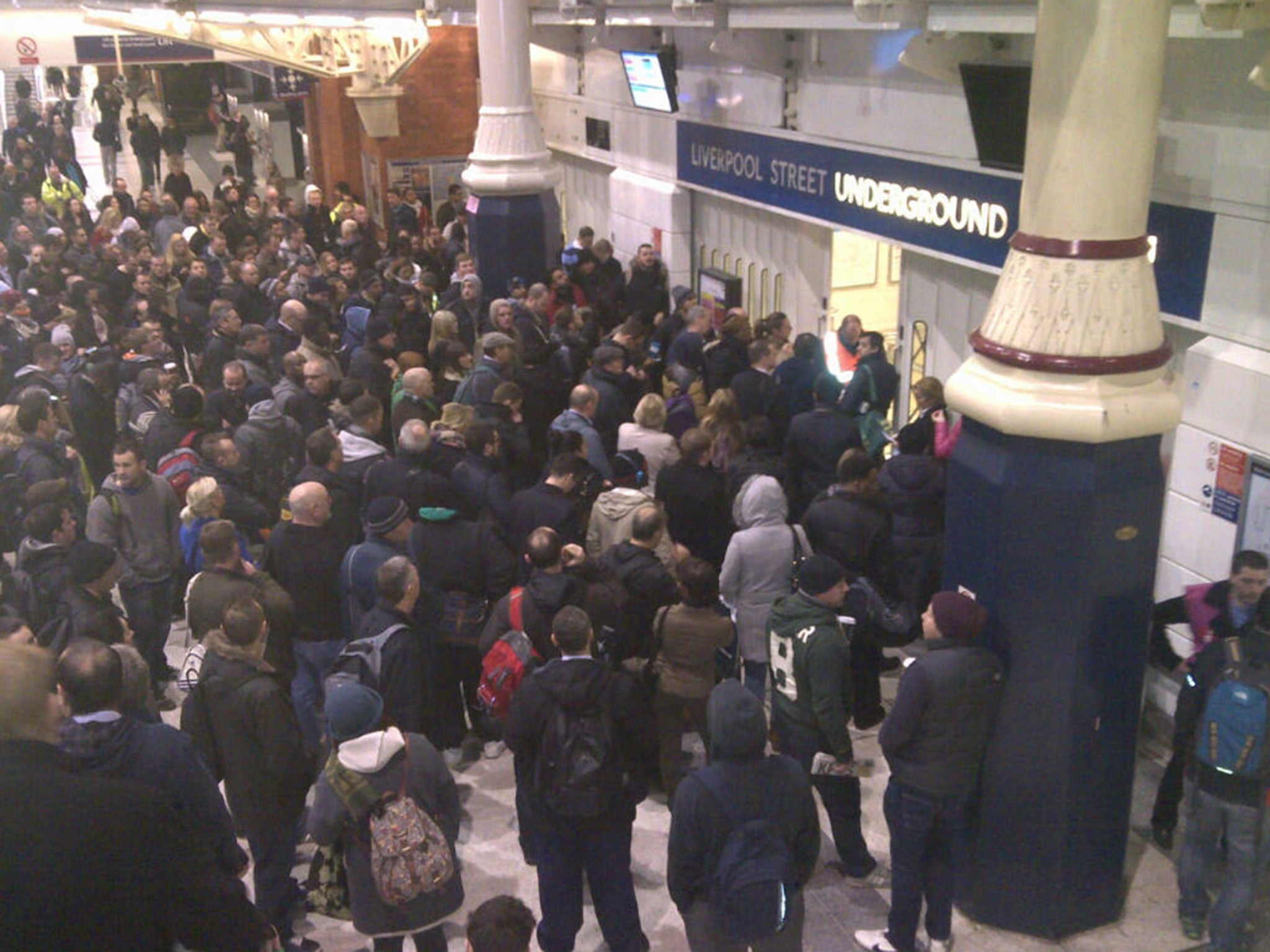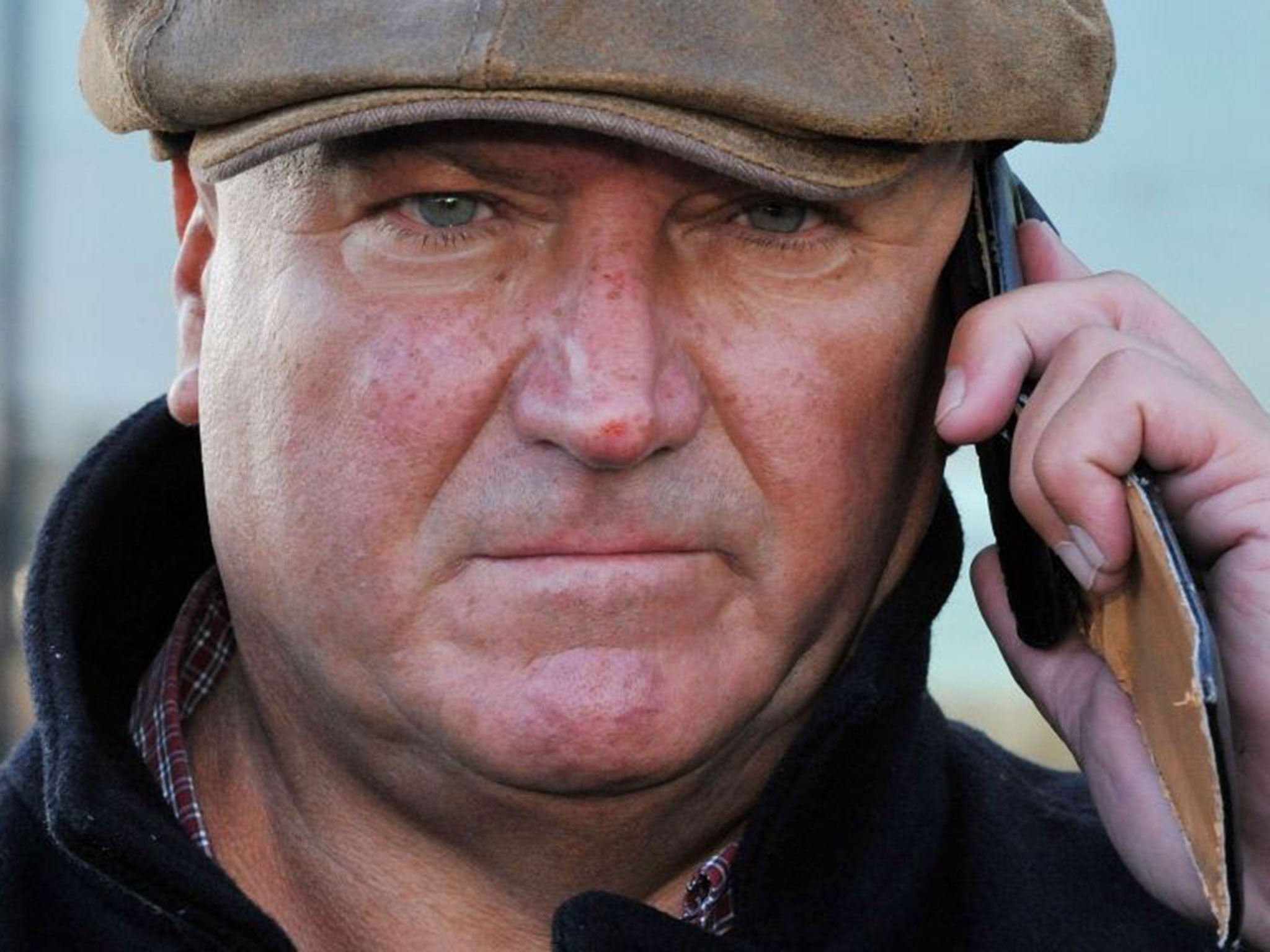Tube strike 2014: Travel chaos as industrial action over ticket office closures hits underground services in London
Staff walked out at 9pm and disruption is expected until Friday morning
Millions of commuters in London faced long delays and disruption today as a 48-hour strike over Tube ticket office closures hit services.
Members of the Rail Maritime and Transport Union (RMT) and the Transport Salaried Staffs' Association (TSSA) walked out at 9pm last night in protest at the closure of all ticket offices, with the loss of 950 jobs.
There was an immediate impact on services but disruption is expected to be widespread during the rush hour later today and tomorrow as millions of commuters attempt to journey around London.
Around three and a half million trips are made each day on the London Underground's eleven lines.
London Underground said it was operating train services on eight of their lines despite what they described as the "completely unnecessary" strike.
However, services were crippled by the strike straight away this morning with Oxford Circus tube station opening at 7am and closing just eleven minutes later due to a lack of staff. It later reopened.
Elsewhere, Victoria Station remained closed earlier despite a notice saying that a limited service would begin at 7am - it also later reopened.
Images emerged on social media of large queues building outside some stations.
The strike has also had a knock-on impact on services elsewhere with reports of London Overground trains being so crowded that passengers were unable to board them at stations in north-west London.
Read more:
Tube strike: Which lines will be open to keep London moving?
How the strikes will affect your journey (and stress levels)
As expected queues formed at bus stations across the capital.
RMT leader Bob Crow said: "As we expected the action is rock solid this morning and has reduced the network to a skeleton service with only a few ghost trains running through closed stations.
"That is simply a reflection of the staff anger at attempts to bulldoze through cuts to jobs, services and safety which would reduce the Tube to a dangerous, hollowed-out shell", Mr Crow told BBC London 94.9.
"We're available today and later tomorrow for talks and we want to resolve this. The mayor should do the honourable thing and meet with us."
"We respect the mayor. We may disagree with him," he continued. "But all we want to do is to listen to our point of view."

TSSA leaders claimed the service had been reduced by 70% and called on Boris Johnson to "end government by gimmick" and "enter serious talks".
Train passengers were also having problems because of a return to the wet and windy weather which has devastated travel across the UK.
Southeastern trains said the forecast weather, after the wettest January for a century, presented a risk of further flooding, landslips and falling trees.
Network Rail has put in place a 40mph speed restriction across parts of the Southeastern network.
Meanwhile, politicians have condemned the industrial action, with Conservatives again calling for changes to employment laws covering the numbers voting for strikes in a ballot.
Yesterday, a spokesman for the Prime Minister said Mr Cameron "thinks that Bob Crow's strike is plain wrong and he should call it off rather than inflict misery on hard-working families in London".

Boris Johnson responded to the disruption caused by the strikes saying: "We are doing all we can to try and get people to work."
"I recognise in some cases it is difficult, and I feel enormous sympathy for Londoners this morning, but the blame for this strike lies squarely with union leaders who have resorted to myths and stunts in a pathetic attempt to justify a strike that is utterly pointless."
"It's appalling that a tiny minority of union members have sought to disrupt the working lives of millions of Londoners today. It's clear that at a minimum we need a 50% strike threshold for a key public service like the mass transit system of our capital city."
Earlier this week, Mr Johnson accused rail union boss Bob Crow of holding London to ransom ahead of the two strikes.
His comments came after photographs appeared in the press showing Mr Crow sunbathing on a beach in South America.
In his weekly column for the Daily Telegraph, the mayor said that while he did not begrudge Mr Crow his holiday, he was not entitled to "disrupt the lives of millions of people who are not on holiday but who want to work".
Mr Crow hit back, however, and stressed that his holiday was "booked up well before" the strike action. Mr Crow was also questioned about whether his high-profile was a distraction and how much the holiday cost, with some claiming it was £10,000.
"If I'm going to spend £10,000 on a car, or if I'm going to spend £10,000 on a holiday, or £10,000 on cigarettes, that's up to me," said Crow.
"I'm not being a distraction at all. What do you want me to do? Sit under a tree and read books of Karl Marx every day?" he added.
Watch a video from the picket line last night
Join our commenting forum
Join thought-provoking conversations, follow other Independent readers and see their replies
Comments
Bookmark popover
Removed from bookmarks